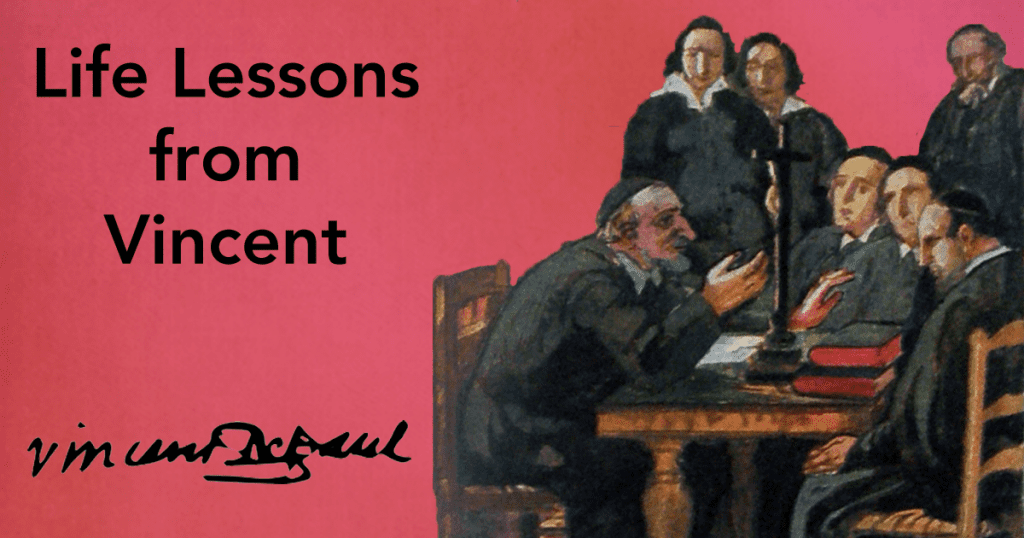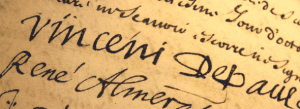 Why bother about a man who lived 400 years ago? Why are so many people all over the world on fire with passion to follow in his footsteps?
Why bother about a man who lived 400 years ago? Why are so many people all over the world on fire with passion to follow in his footsteps?
As we approach another celebration of the feast of St. Vincent it seems fitting to look at these two questions raised in J. Patrick Murphy’s booklet Mr. Vincent.
Fr. Murphy first suggests we look at the works he started. He was a man of action.
– 1634: the sick poor in public hospitals (Ladies of Charity, Daughters of Charity).
– 1638: abandoned children (Ladies of Charity, Daughters of Charity).
– 1639: war refugees (Daughters of Charity, Congregation of the Mission).
– 1645: Christians held captive in North Africa (Congregation of the Mission).
– 1648: the people of Madagascar (Congregation of the Mission).
– 1649: victims of the wars in Paris and the surrounding areas (Congregation of the Mission, Daughters of Charity, Ladies of Charity).
– 1650: assistance to people living in devastated areas (Congregation of the Mission, Daughters of Charity, Ladies of Charity).
– 1654: homes for the elderly (Congregation of the Mission, Daughters of Charity); wounded soldiers (Daughters of Charity).
And that is not to mention perhaps his greatest contribution.
His organization of the service of the poor was the first in the history of the world. At Chatillon he observed, “the people of their town who have sometimes suffered a great deal, more through a lack of organized assistance than from lack of charitable persons.”[xvii]
With that insight, he gave birth not only to a branch of the Vincentian Family but to an approach that we are newly rediscovering.
He taught us the importance of consistent strategies, starting on a small scale, delegating tasks and responsibilities and providing quality services, which respect people’s dignity. Vincent thought about a plan, he called a meeting, formed an association and delegated tasks and responsibilities to parish people, whom he included in the process. It is from this small beginning that the whole movement started.
And yet, Fr. Murphy points out that he was in so many ways an ordinary human guy – not always the saint we have come to revere.
- He was depressed for three and a half years .
- He spent 25 years searching for himself and found God and the poor.
- He gave everything to the poor and became the richest man he knew
What’s in a name? He always remained Mister Vincent.
He always signed his name Vincent Depaul.  He wanted to be sure no one mistook him for nobility—which one might if he had capitalized it—De Paul. He was called many things by those who revered him— saint, scholar, holy man, apostle of charity, and—at his death— “pere de la patrie”, father of the country. But he preferred to be called simply Monsieur Vincent—Mister Vincent—to reduce the barriers between him and others, especially the poor.
He wanted to be sure no one mistook him for nobility—which one might if he had capitalized it—De Paul. He was called many things by those who revered him— saint, scholar, holy man, apostle of charity, and—at his death— “pere de la patrie”, father of the country. But he preferred to be called simply Monsieur Vincent—Mister Vincent—to reduce the barriers between him and others, especially the poor.
Hopefully, these hints help us answer the question posed… and think about what we, as ordinary people can do with the help of prayer and simplicity.







0 Comments